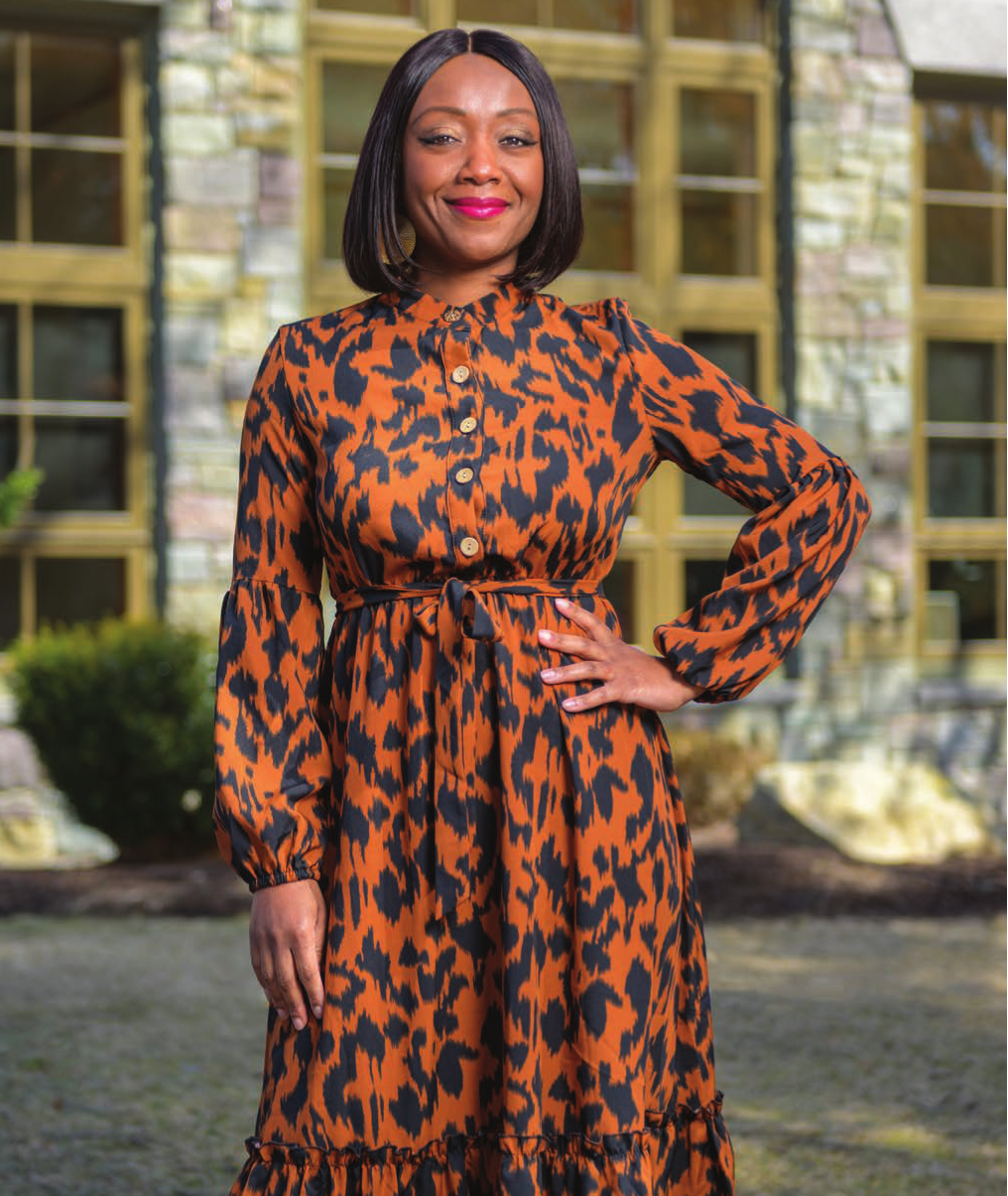Flo Nicolas
Co-Founder, DEI Directive
Producer of “Get Tech Smart”
Passionate about breaking barriers and inspiring change in diversity, equity and inclusion (DEI), Flo’s work has culminated in her co-founding the DEI Directive Intelligence Platform — an HR tool that measures and reports on organization’s DEI initiatives, so business leaders can make evidence-based decisions more easily. Additionally, Flo is the director, producer and creator of two NH local TV shows, “Get Tech Smart” and “Get Resource Smart,” which help New Hampshire residents understand more about technology and organizations that provide resources to residents in need.
• How did you get the idea to start “Get Tech Smart”?
Over 7.5 years in corporate technology operations, I saw how women were being treated in the industry. I specifically looked at my boss who was a talented woman, but she was getting rejected for every role that she was applying for. It got to a point where I wasn’t feeling like I was growing; I hit a flatline. I lost a lot of my confidence. I lost my power.
The most empowering thing was walking away and realizing the power that I had, the creativity, believing in myself that I could do anything. I lost that part. I can’t credit my journey to just me having this awakening without help — I had allies and mentors that stepped in and said, “You are more than you think.” That’s what inspired me to create “Get Tech Smart.”
I already had a YouTube show going on, but I wanted to focus more on all the various areas of tech. Then, I just did it. I had no experience directing or creating a massive show production. I didn’t even have the name of the show until my first episode.
• What’s your vision for the show?
I wanted to put a spotlight on all the technology that was emerging in NH. Someone without a college education should never feel like they can’t get into the technology industry. There are resources out there.
Making a difference in terms of education and tech and providing resources has been my primary focus. Due to the success of “Get Tech Smart,” I created another show, “Get Resource Smart” that focuses on nonprofit organizations in New Hampshire. People don’t know where to look for help — there’s an abundance of resources that I wish I knew about when I went to school. I’m using my time and energy to make an impact.
• How do you advocate for women and DEI in the workplace?
When I worked in corporate technology operations, I got to a point where I wondered how many women were feeling like I was. So, I shared my story on social media and my inbox started blowing up from women all over the world.
I’ve had people tell me they have master’s degrees and they’re struggling to find work. So I would connect them to someone who I knew would listen and be helpful. I started reviewing people’s LinkedIn pages and resumes. Let me take the feedback I received in the tech industry and redirect it for someone else, use it as fuel. Just because I didn’t get a role, doesn’t mean I don’t have the power to help someone else get it.
Under-represented people feel underpaid, undervalued, with no voice, and they feel like they don’t have a seat at the table, so it’s easy to give in. And what I’ve done is help them by saying no, we’re not going to give up.
• What advice do you have for young female business professionals?
A lot of times we are afraid to show up in areas where there are people that don’t look like us, and we let that fear be a roadblock to showing up in those environments. My message is: show up! Don’t be afraid to use your voice to speak up. Show them what you’re capable of.
We’re always talking about breaking the glass ceiling, but if we’re not showing up, we can’t break anything. To current leaders of these tech companies, you need to be willing to be adaptable. You need to look internally and say change is needed, change is okay, change is room for us to learn and grow, and representation matters, because we have to be representatives of the community where we’re doing business. And that is so critical. Use your power of influence to be a catalyst for change.
There are so many people globally who don’t have a voice right now. Change can happen if we collaborate. That’s why, last year, I launched my DEI networking events, and now it’s turned into something big where people are showing up. One voice is great, but have you ever heard a chorus sing when it’s a blend of all the voices? It’s more powerful.